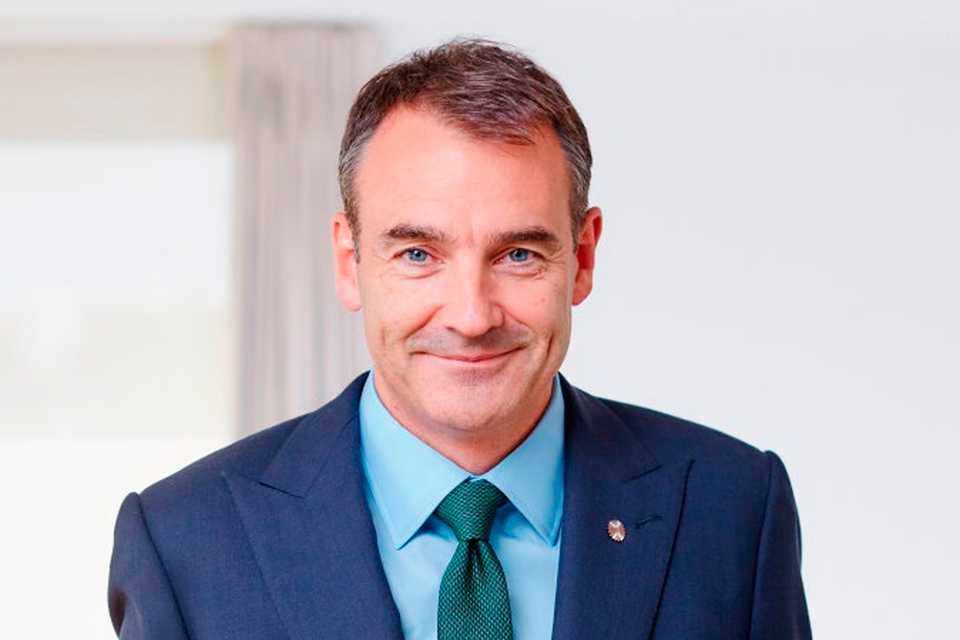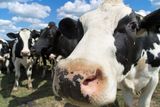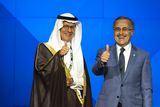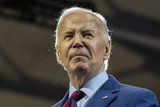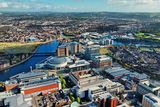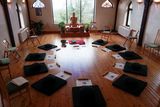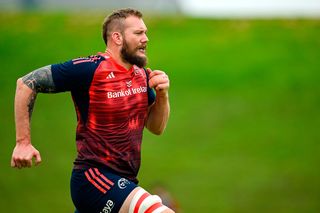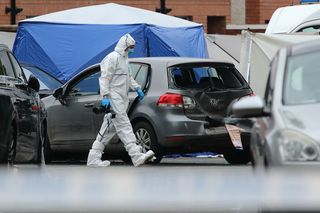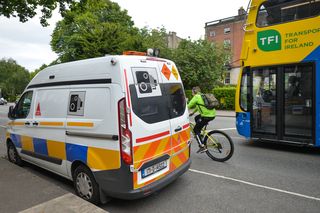How this Kerry farmer's son is a rising star at oil giant BP
Bernard Looney is helping to shape the future of BP, and some oil industry insiders think he could be a future CEO, writes John Reynolds
Bernard Looney is helping to shape the future of BP
Name
BERNARD Looney grew up on a farm in Ashgrove, near Kenmare in Co Kerry. Today, the 48-year-old UCD engineering graduate is based in London and spends about half his time travelling the globe for the world's sixth-largest energy company, BP. As CEO of its Upstream division, which finds and produces oil and gas, he's in charge of 18,000 people - just under a fifth of the entire workforce. Operating in 29 countries, his division spends €7bn to €8bn a year to run it, investing €11bn to €12bn on top of that.
Industry watchers have noted the Kerryman's rise to the top ranks of the $240bn turnover firm, where he started out as a drilling engineer.
The business pages of London's Evening Standard have suggested he's one of perhaps three contenders for the top job when CEO Bob Dudley steps down.
Oilmen here in Ireland have also noted his progress. "He's hugely knowledgeable and very engaging. I've met him several times," said Providence Resources' chief, Tony O'Reilly junior.
"He seems to be on the fast-track to the top," notes Ardilaun Energy founder John McKeon. Mining, diamonds, whiskey and oil tycoon John Teeling and his lieutenant David Horgan have also found him impressive.
Of course, the firm would prefer not to be known as only an oil company and instead more broadly as an energy company, investing in wind farms, solar power, biofuels in Brazil, green concrete, battery technology, mobile car-chargers and a charging network, renewable alternatives to plastics and a portfolio of other tech startups.
But it will forever be associated with the Deepwater Horizon oil spill in the Gulf of Mexico in 2010 - the largest in US history - where a blowout and fire killed 11 people and injured 17, harming or killing tens of thousands of birds and various marine life along the coastline of five states. It has cost the firm $66bn (equivalent to about 11 times last year's profits) in fines, legal bills, clean-up and compensation costs - paid largely through selling off assets - after a judge found the blame for the disaster was 67pc attributable to BP.
Looney - who was at the time head of BP's North Sea operations - was one of many people, both inside and outside the firm, drafted in to try to come up with a solution to plug the well. "I was in Houston for 60 days straight helping out. To see what happened was very, very difficult. We will never forget what happened. We always have to have an eye on the past, because that has shaped the company. It was, without doubt, the most challenging time of my career," he says.
"What you find during times like that is the depth and resources of people in the company and their extraordinary commitment. To work with Bob back then to try to rebuild the company was both enormously challenging and rewarding.
"This is a company that has given me everything I have in my life. I've been with them for 28 years, and it's a company I love. It's given me experiences and a life and career that I would not have otherwise had."
As we talk in Looney's glass-fronted office in the BP HQ in London's St James's Square - while press officer David Nicholas and Looney's Trinidadian executive assistant, Chan Boodhai, sit in to observe - a huge panoramic photo of a BP oil rig, Thunder Horse, that operates in the Gulf of Mexico, dominates the room. The Irishman shows us a clear plastic cube in which is a small amount of black crude oil.
"Thunder Horse is the size of three Croke Parks, sits in a mile of water, and the wells are three or four miles beneath that. It's a floating rig, processing up to 250,000 barrels of oil and 200m cubic feet of gas a day - a real feat of engineering," he enthuses, as he shows us a video - in order to better illustrate the scale of the rig - that he took from a helicopter while visiting it last year.
With an accent alternating between mid-Atlantic and Irish - perhaps due to the year he spent getting an MBA at Stanford University - he's diplomatic and at times understated, at others matter-of-factly holding forth to make his case.
"I'm enjoying the job I have. Bob took over at a very difficult time and got the company through it. We're now in a period of growth. We all enjoy working for Bob, and I don't think he's going anywhere," he says, batting away the idea that he might be in line for the top job anytime soon.
The week before our interview, Looney was at the UN General Assembly in New York, where he was meeting the President of Angola and its energy minister. He's been spending a lot of time in Mauritania and Senegal over the last two years too. For most of September he was in the US, travelling between half a dozen cities. Places like Iraq, where BP pumps 1.4 million barrels of oil a day in the huge Rumaila field, feature among his passport stamps too.
"Part of the role is helping understand countries' needs and what their challenges are, and how we can help a large but very poor country like Mauritania achieve some of the ambitions it has with its resources."
It's quite a way from his Kerry roots, on a small dairy farm - "only about eight acres out of the 90 we had were actually arable. We had 14 cows and it was pretty much subsistence farming".
While his sister went into banking, his older brothers - a garda, an electrician and a telecoms engineer - overhauled Ford tractors and sold them on to make a bit more money. Looney was "the gopher, bringing them whichever tool they needed", when not helping out with farm duties.
He was the only one in the family who went to university, having been encouraged to read everything he could by his mother. "She said if I could read, I could do anything." Neither of his parents stayed in school beyond the age of 11.
Does being Irish help in any way in his role? "Diplomacy does to some extent come with being Irish. You have to know your place. There's no bad baggage, which there can be if you come from other countries. Many of us perhaps have a certain humility, and if you want to develop a relationship, a little bit of humility can go a long way. But after that it's about the individual."
Challenged about the influence an oil and gas giant might have over governments and their decisions, and the invasion of Iraq being a war for oil, for example, he doesn't bristle.
"We stay out of politics and don't take sides. We work with governments, but we're a guest in their countries. Our job is to work with whoever is in power to do what we can to help countries achieve their objectives. We try to do it well, but we don't always get it right."
He continues describing his role. "We're drilling in Canada, starting projects in the North Sea, trying to get the Mauritania and Senegal project across the line. We're bidding for new licences in Brazil.
"We've got a project taking gas from the Caspian Sea, across Azerbaijan, Georgia and Turkey into Europe. It's nine months early and about 20pc under budget. It had 26,000 people working on it at its peak. We just finished a project in Oman, with 12,000 people working on it. It's a 1bn cubic feet a day of gas, going to 1.5bn by 2020 or 2021.
"We have to be ultra-competitive, because the cost structure of oil and gas is changing and due to competition from other energy sources. We have to drive down the break-even cost of our business to between $35 and $40 a barrel by 2021. Our response to an uncertain world is to be resilient. We've gone through a phase of adjusting and we're now in a very strong position and in a major growth phase.
"At the same time, we're trying to figure out how to develop our people; how to have more women in the workplace and embrace investments in tech and renewables.
"We want people like Chan to run the company, rather than people from the traditional US or UK. More than half of our production comes from outside of those countries, but that's not reflected in our leadership, so this is an agenda I'm pushing.
"I don't care about people's age, gender, nationality and what have you, but I want them to have a meritocratic environment that's based on their abilities and their work. It's something I'm passionate about."
Looney is equally keen to demonstrate some of the technology BP is deploying and recently spent time with its tech investment arm, BP Ventures, in California, sharing insights with car companies including Mercedes and Renault to car parts maker Bosch and the likes of ridesharing app firm Uber. On a large touchscreen on one of his office walls, live data from all the Upstream division's activities is streamed in real time, giving a picture of the performance of drilling and production around the globe as well as the related financial numbers.
A video then plays, describing how, in the same way as jet engine maker Rolls-Royce monitors the performance of its engines in real time, BP models "digital twins" of all its oil and gas wells, combining historical and real time data. It can monitor, simulate and optimise production, testing variables in order to both find optimal solutions and deal with and anticipate unforeseen occurrences. It makes production more efficient and also allows oil to be produced using less water and gas.
Just as apps like Spotify or Shazam can distinguish between classical music and hard rock using an algorithm listening for specific sounds or acoustic signatures of specific songs or types of music, BP also lays miles of fibre-optic cable inside its wells, which act like a distributed array of microphones recording sounds deep underground.
The microphones listen for sounds such as sand entering a well, or building up, or gas bubbles in oil. It can work out where it's happening, and can take necessary action early on such as adjusting pressure, clearing out a well, or shutting off part of a well. "You probably wouldn't think of us as a tech company, but this one we think could have other applications as well, we believe, beyond oil and gas, perhaps even in the medical field," Looney says.
Pipelines in Alaska too are inspected in real time, with robotic crawlers that carry out 1.2 million X-rays a year, geo-tagging the exact location of each piece of data and feed it back to BP staff by satellite. At its disposal, the company also has the world's largest non-military supercomputer, capable of carrying out 9,000 trillion calculations a second. Cognitive artificial intelligence and quantum computing are other key areas of interest.
A student at Stanford came up with an algorithm that helped the company interpret and process some seismic data. "With the technology that existed in 1999, it would've taken 1,000 years to do this calculation. But it took two weeks with our computer. And it meant we found an additional 200 million barrels of oil, worth about $15bn."
Did the student earn a share of that? "He got a monetary bonus, but it won't be what people might think. It wasn't a percentage. People might think he'll never have to work again, but he got a bonus and a lot of recognition," he says with a laugh.
Impressive technology aside, the elephant in the room is climate change and the energy transition needed to avoid the planet warming by more than 1.5 celsius. At two degrees, hundreds of millions of lives are at risk and the picture becomes extremely dystopian, to bluntly summarise it.
BP employs Spencer Dale, a former deputy governor of the Bank of England, who publishes a widely-respected energy outlook every year. He paints a picture where, in one scenario for which policies are not currently in place, oil and gas demand in 2040 remains much the same as it is today due to population growth.
"The Paris climate change agreement would take us to three degrees, so 1.5 is ambitious and nobody has a clue about how to get there," Looney says starkly.
"The big picture is that BP is producing more gas than oil - 55pc/45pc, set to rise to 60pc/ 40pc - because it's a cleaner fuel. Dale has said that at the global level, many countries are not transitioning fast enough from coal to gas-generated electricity. This is despite the headlines we read in Europe, where city centres are beginning to ban petrol and diesel cars, for example.
The latter are a key part of the transition, Looney - who doesn't own a car, preferring to take taxis or public transport - says, adding: "We believe that there is probably more oil in the world than the world will need."
With climate change targets on the horizon, some governments are also scrambling to develop their resources too, however, so as not to be left with what the industry calls stranded assets, while Ireland has debated banning fossil fuel exploration and several other countries have banned it.
Gas will help produce electricity for electric vehicles, but aviation, shipping and trucking - as well as especially oil for non-combustible uses for manufacturing products, lubricants and fertilisers, for example - will be key drivers of oil demand, BP says.
Other key numbers are stark. Eighteen years since a 'Beyond Petroleum' rebrand, the pace of any moves 'beyond' fossil fuels appears to be glacial. BP's investments in renewables might reach $500m a year in the near future.
An investment in the largest European solar firm Lightsource amounted to $200m. Set that against the $75bn of assets it sold off to cover the Deepwater Horizon costs, or the $10.5bn it spent in July buying US oil and shale gas assets of BHP.
While BP has invested in biofuels in Brazil, annual production is only 4.88 million barrels - equal to about 2.2 days' oil production. In aviation fuel, despite an investment in Fulcrum Bioenergy, which makes jet fuel from household waste that cuts emissions by 80pc, current production levels are a mere 50m gallons - about 0.75pc of the 6.5bn gallons that Air BP sells annually.
"Fulcrum is very much in expansion mode. Imagine if we can help aviation cut its emissions by 80pc," Looney says, believing it is scalable, and emphasising that these are at a very early stage.
"Energy has brought enormous benefits to the world, and there are a lot of people in it that don't have what we have. Over a billion people still don't have access to electricity and may be cooking using manure," he points out.
"Look at how average GDP has increased in the world by 30 times since 1960. Average life expectancy has increased from 52 to 72. Look at where rural Ireland came from and the impact of electrification.
"The US is back at 1990 levels of CO2 emissions because they're using shale gas. The UK has radically cut its emissions as well by phasing out coal power stations. The world is going to need more energy. We care at BP. We live on the planet as well. We have to do a better job," Looney says.
CURRICULUM VITAE
Name: Bernard Looney
Age: 48
Position: CEO, Upstream, BP
Lives: Central London
Education: Electrical engineering, UCD; MBA, Stanford University
Previous experience [all with BP]: Drilling engineer in various locations; Senior VP at BP Alaska; MD at BP North Sea; EVP Developments; COO Production.
Family: Married
Pastimes: Travel; Following farming, tractor and car-related accounts on Instagram
Last holiday: A weekend in Rome
Recent box sets: House of Cards, Broadchurch, Marcella, Bodyguard
Reading: Anglo Republic by Simon Carswell; The Bank that lived a Little, by Philip Augar
BUSINESS LESSONS
Who has inspired you during your career?
My mother was a big believer in education as the route to a better life than we had on the farm. She encouraged me to read from an early age. My eldest brother, an electrician, was the brightest of us all. He couldn’t afford to go to university, so I took the route he might have done.
I also spent some time with the late Peter Sutherland [a former chairman of BP]. He was very supportive and a key source of inspiration as a fellow Irishman who had succeeded on the world stage.
What might you be doing if you hadn’t joined BP?
I had a summer job in Brennan’s Bar in Kenmare, and I’ve always liked hospitality. Perhaps I wouldn’t work in a pub, but something in that sector.
In a role where you’re heading a division of 18,000 people, what is your management style?
I try to learn everything I can. I try to keep it simple. Work hard. Make a difference in your role. And treat people well. Everything we do is about our people. If we help them to be the best they can be, we will do well.
Join the Irish Independent WhatsApp channel
Stay up to date with all the latest news
